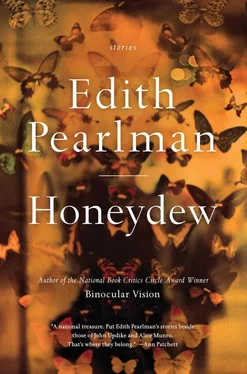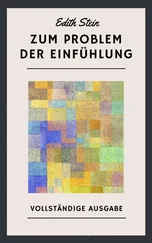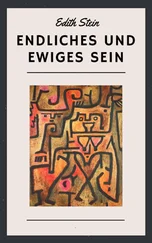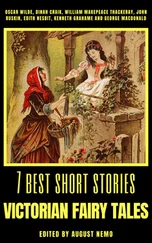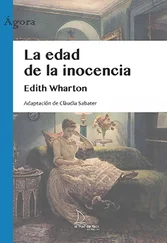One of the volunteers interrupted the tense silence by suggesting coffee. Miss Valentine, talking to herself, appeared with a tray of unopened dinner packets that had just been delivered by a Sabena airline steward on his way home. The site visit turned into a party.
The rains continued. Mushrooms appeared overnight on lawns. O-Kay fed some of them to the gerbils. “Enjoy your sweet life while you can,” she told them. “Because someday soon…”
“Shut your hole,” Miss Valentine said, and she hit O-Kay on the side of the head with her pocketbook. Miss Valentine was immediately barred for twenty-four hours by the staff. A volunteer put her arm around O-Kay. O-Kay ducked under the arm, embraced Pam, and began to shake uncontrollably. Pam suggested that O-Kay lie down. The volunteer burst into tears. Donna suggested that she lie down. The gerbils passed out, but they woke up half an hour later with no apparent ill effects.
Still the rains came. Storefronts gleamed coldly in the brief intervals of pale sunlight. The alley behind the church bubbled with mud, and a black lake formed in front of the stairs leading to the Ladle’s door.
Donna too would soon be awash. Her sac of amniotic fluid was just holding. On the Wednesday of the second week in December she felt a mild wrench. She had a doctor’s appointment that afternoon. Leaving, she recklessly told a little clutch of women that the baby, male, would be theirs to name.
“Oh, Jesus, Donna,” groaned Pam, but her voice was drowned out by suggestions: Achille, Nelson, Steve…
The obstetrician looked pleased during the examination. “Any day,” she said.
Donna returned to the Ladle. The Cuisinart had broken again; maybe she could fix it before the baby came. And O-Kay’s car had sprung some new leaks. She’d speak to O-Kay about spending a night or two in a shelter.
In the alley Donna paused dreamily before the big puddle. The rain had stopped, probably only briefly, just to tease them. The sky was a deepening mauve. The puddle was the color of garnets. Beyond this jeweled lake the three stone steps descended damply to the Ladle’s door, which was slightly ajar, as if by inadvertence. But that heavy door couldn’t have been left ajar accidentally. Donna squinted. A brick made of Legos had been inserted between the door and its jamb. She walked around the puddle to the nearest ground-level window and lowered herself into its well, her sneakered feet sinking into decaying leaves. She peered into the dining room.
O-Kay and Miss Valentine and Mimi sat side by side at one of the long tables. On the back of each chair was draped a coat — O-Kay’s schoolgirl parka; Miss Valentine’s black sateen trench coat, plucked from donations one lucky day; Mimi’s suede garment, the fur hat resting on its shoulder. The cage of gerbils had been removed from the platform and now occupied most of the center of the table.
For a while all three gazed at the cage. Then Mimi lifted its gate. The gerbils ran out. Mimi lowered the gate.
From the window well Donna moaned aloud. The creatures would head right for the pantry. They’d get into the rice or the cornmeal. She’d have to call the exterminator again, and throw out half the dry produce.
But the animals surprised her. They raced not for the kitchen but for the hall leading to the back door. She lost sight of them. She stood up in the well in time to see them leaping over the Lego brick. Pell-mell, with all the willfulness of the crazed, they ran up the cement stairs and into the lake. There they drowned.
Donna sat down again. Mimi was replacing the cage on its platform. O-Kay and Miss Valentine were putting on their outerwear. O-Kay wasn’t shuddering and Miss Valentine’s mouth was closed. Even on medication they had never looked so placid. Then the two disappeared from Donna’s view, like the gerbils. She transferred her gaze to the door and saw Miss Valentine pushing it open. Miss Valentine and O-Kay climbed the stairs. They skirted the puddle and companionably got into O-Kay’s car and drove away.
Mimi, wearing coat and hat, stooped to pick up the Lego brick. She put it into her pocket and pushed the door open and climbed the steps while the door closed behind her, locking itself. She bent over the puddle where the drowned animals eddied. She retrieved them with her right hand, which was protected by a surgical glove. She lifted the lid of the nearby dumpster with her ungloved hand. She tossed in the corpses and lowered the lid.
“What about that empty cage?” Donna called from the well.
“Steve will deliver a new pair of gerbils tomorrow,” Mimi said. She peeled off her glove and raised the dumpster lid again. The glove arced palely into the trash. She walked to the window well. “If you stay there any longer, your baby will be born with the sniffles,” she predicted.
Donna extended her hand and Mimi took it and helped Donna climb out of the well. They stood for a moment, hand grasping hand, like friends who have known each other long but never intimately and who now must say good-bye.
“I look forward to volunteering under your supervision,” Donna made herself say. She discovered that once said it sounded true and perhaps even was true. “That business with the beasties — an inventive cure for madness, transferring the demons. Though of course you need animals always at the ready…” She trailed off.
“We’ll have them,” Mimi said.
Truth lies within a little and certain compass.
— Viscount Bolingbroke
It took my aunt Toby twenty years to profit enough from fictohistoriographia to give up teaching, to release the two of us from New York, to realize her dream of buying a house on Lake Piscataqua in New England. But at last, the year the century turned, we could afford the very house she had in mind. We packed up the little Eighth Street apartment — furniture and a few treasures: the Turkish rug, the Dutch menorah. Toby held what you might call an exit interview. The interviewer was a young reporter from a literary rag. I sat in.
“Fast and loose? I?” Toby repeated to him. “With men or women?”
“With data. It’s been suggested. I heard,” said the flustered fellow.
“No. Not. Not on your backside,” Aunt Toby said. “Never have I claimed something to be true that I knew was not true — or claimed something to be true that was discovered to be false.”
“Fabrications, they say…”
“Oh, fabrications. Literally, yes. I make things up out of whole cloth — that’s to fabricate definitions one and two. One: ‘to make; create.’ Two: ‘to construct by combining or assembling diverse parts, as in to fabricate small boats.’ However, three: ‘to concoct in order to deceive, as in to fabricate an excuse’—I don’t do that, darling.” He blushed. “I concoct,” she continued, “but only to illuminate! How could I possibly write a history of, say, the Slavic cleverness employed in the Battle of Thessalonica without adding some tricks of my own divining?”
The Battle of Thessalonica left traces of itself in old histories. All the rest — the winged mercenaries, their pinions fabricated from cloth, the boy spy Dimitry and his pal the giant Vladimir, one on the other’s shoulders — is Toby’s doing, imagined by her dedicated intellect, unprovable, also undisprovable. The art of fictohistoriographia has been perfected by her, and without it the world would be a poorer place. So always said Mr. Franz Szatmar, her steady admirer. Franz Szatmar of the deep eyes, the major nose, the transparent hair fluttering on either side of his narrow forehead.
I always called him Uncle Franz, though his poor frail wife I addressed as Madame Szatmar.
“Lance, your aunt is generosity itself,” Madame Szatmar once declared, addressing me while Toby strode from our Village living room into the kitchen to brew a deep blue tea that might just prolong the old lady’s sad, barren life. “Discretion too. She keeps secrets as if her tongue has been torn out.”
Читать дальше
